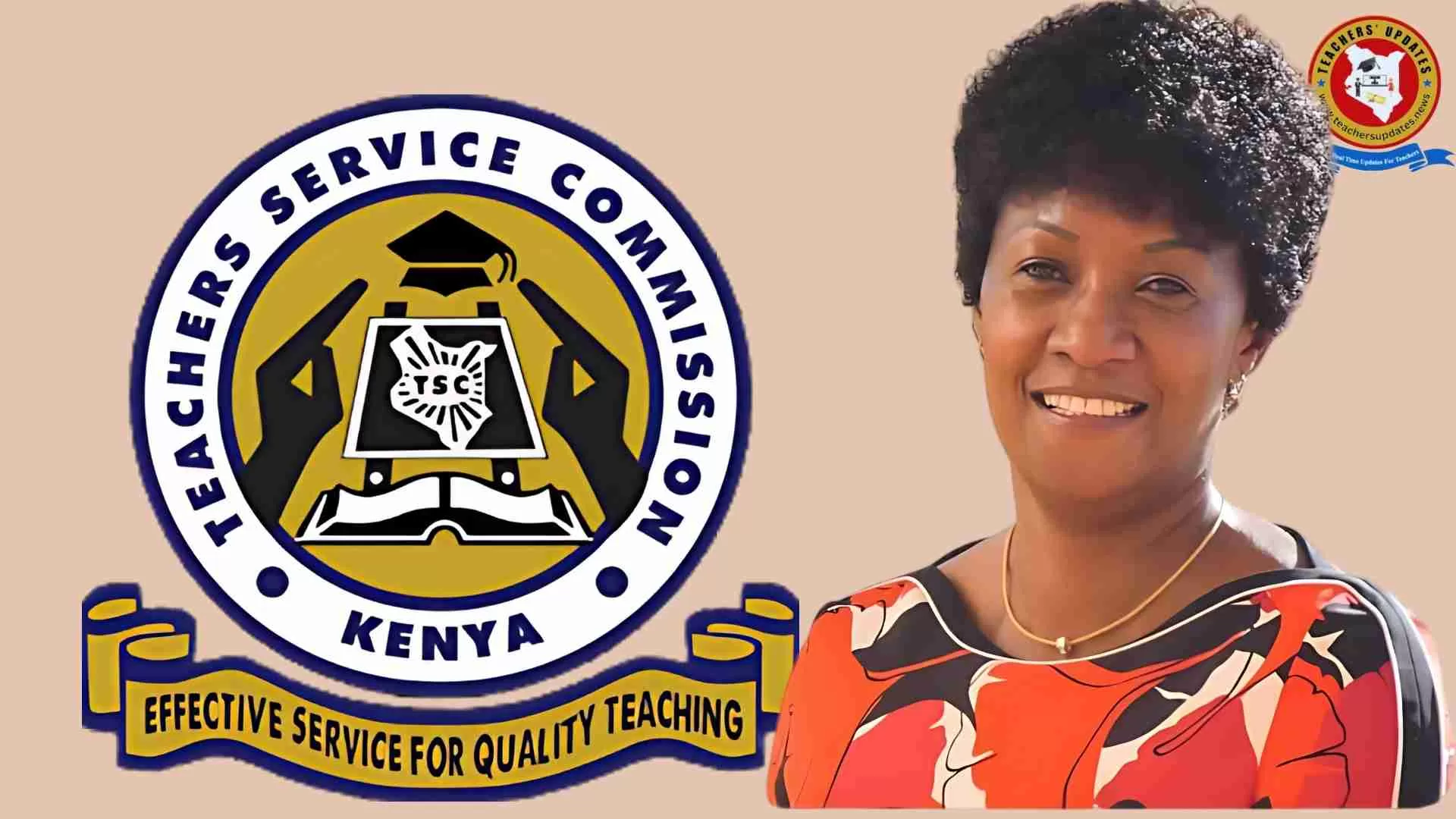TSC Announces Plans to Export Kiswahili and English Teachers to Middle East, Europe, and Asia.
The Teachers Service Commission (TSC) has unveiled plans to export Kenyan teachers, particularly those specializing in Kiswahili and English, to at least 17 countries.
This initiative is driven by the growing demand for Kenyan educators in countries such as the USA, Ireland, Germany, South Africa, and several Middle Eastern nations, aiming to provide employment opportunities for thousands of unemployed teachers.
According to Nancy Macharia, the CEO of the Teachers Service Commission (TSC), the policy was developed following requests from foreign governments seeking to hire Kenyan teachers.
TSC’s research and consultations with the State Department of Diaspora Affairs have confirmed that there is high demand for Kenyan teachers, especially in the USA, Ireland, and Germany, with a focus on English teachers.
Other countries, such as South Africa, Thailand, and several Middle Eastern nations, have also expressed interest in Kenyan teachers, particularly those skilled in Kiswahili.
The new export initiative will target a range of countries including Kuwait, Japan, the UAE, and Qatar. These nations are specifically seeking teachers with expertise in special needs education, Islamic religious education, and science.
Join Teachers Updates on Facebook
Additionally, Kiswahili teachers are needed in countries such as China, France, Botswana, and Japan. For English language teachers, there are opportunities in France, Canada, Vietnam, Taiwan, South Korea, Russia, Spain, China, and the UAE. The placements will be made through government-to-government labor export programs.
Selection Criteria for International Placements
Teachers seeking placement abroad must meet specific criteria. They must be Kenyan citizens who have completed their education with a degree, diploma, or certificate from a recognized institution. Furthermore, they must be registered with the TSC and meet the requirements of Chapter Six of the Kenyan Constitution.
The policy also outlines the need for teachers to meet any additional qualifications or certifications set by the host countries, such as language proficiency or specialized training.
The policy emphasizes the importance of supporting teachers throughout the process. The TSC will collaborate with relevant ministries and agencies to provide an orientation program covering essential topics such as security, medical issues, transport, terms of engagement, remuneration, and cultural sensitivity.
Additionally, the policy advocates for the standardization of contracts, which will clearly outline the terms of service, including salary, work hours, benefits, housing, insurance, and repatriation conditions.
Teachers employed by the TSC on permanent contracts will be required to resign in order to take up international teaching positions. The TSC will then fill these vacancies to ensure that teaching and learning continue without interruption. Upon returning, teachers will not be guaranteed reemployment but will have the opportunity to apply for vacancies as they arise.
Past Initiatives and Future Developments
In July, Musalia Mudavadi, the Prime Cabinet Secretary, flagged off some teachers who had secured positions in the US. However, this was not part of a government initiative, but rather an arrangement through a placement agency.
The new policy framework will formalize the process of teacher exports, ensuring that the interests of Kenyan teachers are protected and offering clear terms for their employment abroad. This includes cultivating partnerships with host countries to promote global educational cooperation.
Despite the government’s efforts to address the country’s teacher shortage, it has struggled to absorb all qualified teachers. In October, when the TSC advertised 46,000 vacancies, it received over 300,000 applications.
The education sector continues to face staffing gaps, especially in junior schools. President William Ruto had promised to hire 116,000 teachers within two years, but this goal has proven difficult to achieve.
The policy also emphasizes the professional growth and development opportunities for Kenyan teachers working abroad. Exposure to different educational systems, teaching methods, and cultural contexts will enhance their skills, benefiting both the teachers and their students.
Additionally, these teachers will contribute to the country’s economy by generating remittances and boosting foreign exchange earnings.
Database for Teacher Placements
The TSC plans to create and maintain an up-to-date database of Kenyan teachers available for international placements. This system will store information such as personal details, qualifications, areas of expertise, and preferred host countries.
The database will facilitate the matching of teachers to suitable positions and will be accessible only to authorized personnel. It will also incorporate a feedback mechanism to continuously improve the process, with regular reviews of the policy framework every three years.
ALSO READ: Rising Trend of Early Boarding Schools: Pros and Cons
While the Kenyan government has made labor migration a key part of its job creation strategy, the policy has sparked debate. Critics argue that the focus should be on creating local job opportunities for teachers rather than exporting them.
There are concerns about the working conditions for some of the lower-level jobs, particularly in the Middle East, where reports of poor treatment have raised alarms.
TSC Announces Plans to Export Kiswahili and English Teachers to Middle East, Europe, and Asia.
Follow Teachers Updates on Facebook, LinkedIn, X (Twitter), WhatsApp, Telegram, and Instagram. Get in touch with our editors at [email protected].


Discussion about this post